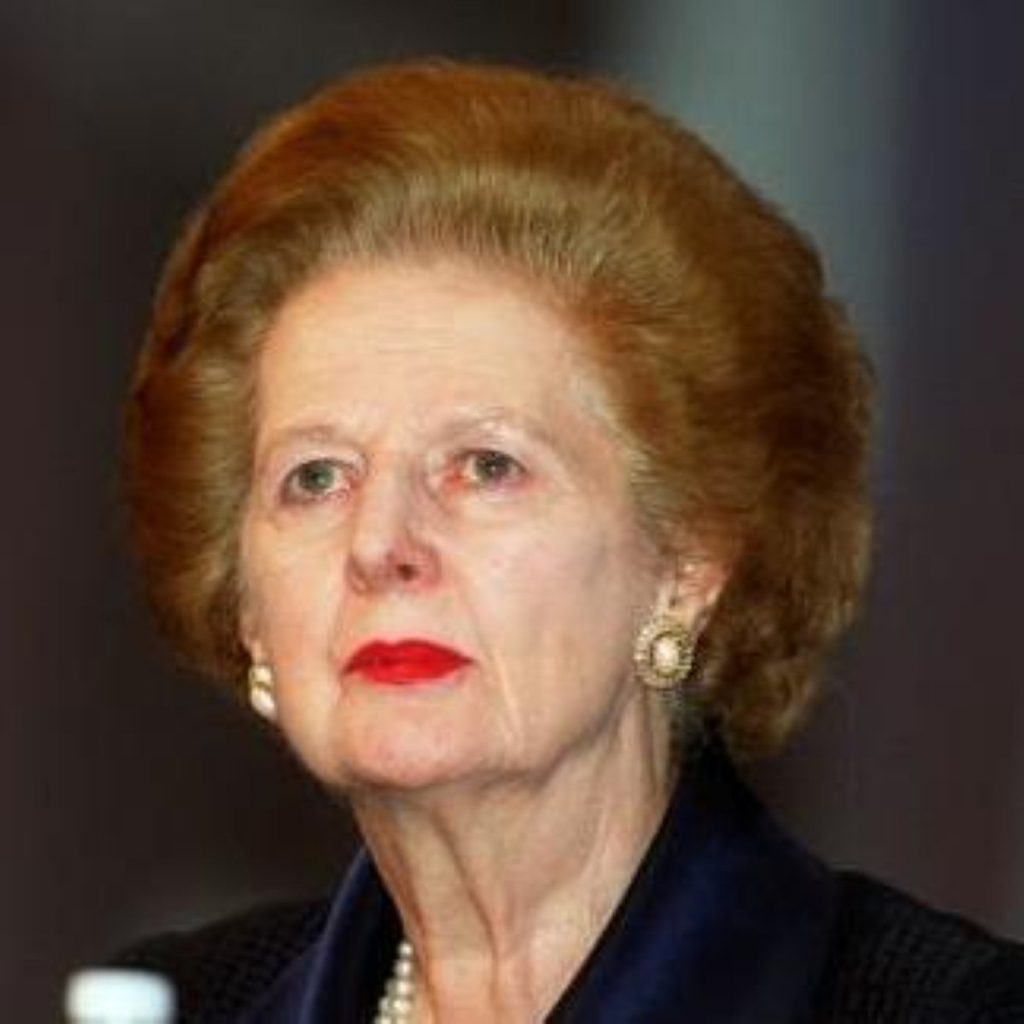A softer side to the Iron Lady?
By Ian Dunt Follow @IanDunt
Newly-released government documents have provided a somewhat softer view of Margaret Thatcher than previously accepted.
The former prime minister is a figure of worship for many on the right and an object of hate for many on the left, but the confidential documents, which cover the year 1981, present a more well-wounded and consensual politician than her public image would suggest.
The IRA hunger strikes, which were met with an aggressive, combative response from the Thatcher at the time, were also the subject of secret negotiations behind the scenes, the documents reveal. The IRA prisoners' campaign for political status were subject to two separate back-channel exchanges in which Thatcher set out concessions she was prepared to make for the strike to end. The papers also reveal that the prime minister allowed Cabinet to discuss a British withdrawal of Northern Ireland.


Elsewhere, Ms Thatcher rejected arguments that she should stop meeting with MPs from constituencies where factories were being closed. Keith Joseph and Norman Tebbit both told the prime minister the meetings were creating undue optimism, but the PM stood firm.
Ms Thatcher rejected calls from the Treasury to manage the decline of Liverpool, instead sending Michael Heseltine to the city, where he reported sympathetically on its situation and the hostility of the police. The prime minister was reported to be "taken aback" by the extent of hatred towards the police and "very concerned" at the situation.
The prime minister emerges well from papers concerning the costs for her own upkeep in Downing Street.
She criticised civil servants for spending £2,000 on refurbishing the living space in No 10 and insisted she would pay for a £19 ironing board herself – a far cry from David Cameron's decision to spend £680,000 of public money renovating Downing Street.
“I will pay for the ironing boards and other things, like sufficient linen for the one bedroom we use. The rest can go back into stock," Ms Thatcher wrote on the document.
The publication of maintenance costs at Downing Street and Whitehall following a written question from an MP saw Ms Thatcher express shock that the cost to replace linen stood at £464 while crockery came to £209. After an aide wrote in the margin that the figures were "impossible to believe", Thatcher added, in blue felt tip pen: "So do I! I could use my own crockery. Bearing in mind we use only one bedroom — can the rest go back into stock. I will pay for the ironing board."
Nearly three decades before the expenses scandal Ms Thatcher also slaps down Nicholas Edwards, the Welsh secretary, for proposed upgrades to his office.
"I am told that the provision of a flatlet would cost up to £20,000 and a bathroom alone £6,000," he wrote. "I appreciate that expenditure of this kind always invites criticism but I have no doubt that the provision of basic facilities of this kind is long overdue, is a real need and in no sense a luxury, and I should therefore be grateful if you felt able to approve the necessary work."
Mrs Thatcher responded: "It is a good idea but not [underlined twice] at that price. I just don’t believe that a one-room + bathroom + kitchenette can cost £26,000. Get some other estimates."
The papers concern Thatcher at the weakest point of her time in office, with polls suggesting she could be ejected from Downing Street at any time. This might explain the cautious characteristics contained in the papers. The years which followed saw the Falklands war boost her popularity ten-fold, while the miners' strike saw her at her most divisive. It seems likely, though by no means certain, that the documents released in the next few years under the 30-years rule will portray a harder, colder figure than the one on display today.












